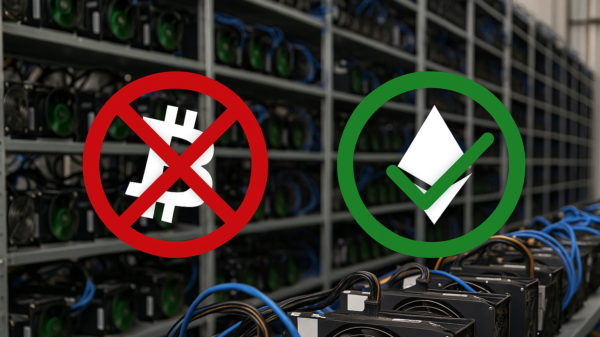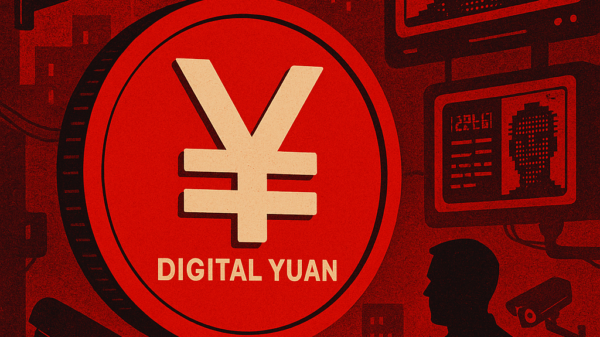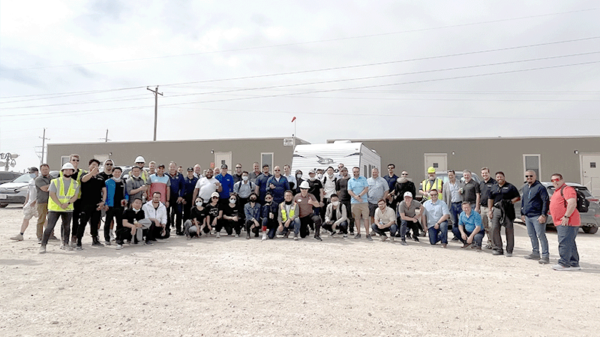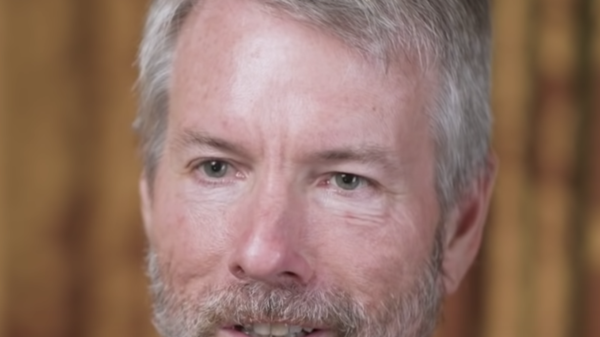Hut 8 Mining Corp. (NASDAQ: HUT) (TSX: HUT) partnered with sustainable energy tech company, Sparta Group‘s (CSE: SAY) carbon credit program with the goal of reaching carbon neutrality by 2025.
The company has submitted 369 metric tonnes of electronic waste to the Sparta Group’s carbon credit program in 2023, and earned the equivalent of 7,500 metric tonnes of carbon dioxide in carbon credits.
Environmental consultancy firm, AET Group verifies the carbon credits generated under the recycling program, which is the first of its kind in Canada. For every metric tonne of carbon dioxide diverted from landfills, the program generates one carbon credit, accounting for shipping and processing costs. Brookfield Global Integrated Solutions (BGIS) has partnered with AET Group as their verifiers.
Hut 8 staff recently completed a 3-week blitz as part of ongoing efforts for this initiative. During this period, the company collected, categorized and loaded approximately 813,425 pounds (or 369 metric tonnes) of e-waste. This includes obsolete application specific integrated circuit (ASIC) miners, hash-boards, power supply units (PSUs), cables and other components for shipping to facilities owned by Re-Eco Tech Electronic Conversion LTD (ERS International) which handles the company’s e-waste. The firm then either sells these materials to third parties for re-use or recycles them appropriately, ensuring that none of the materials end up in landfills.
“Hut 8’s team and their commitment to making environmentally impactful choices with their materials set a commendable standard for the industry,” said Joseph Cimorelli, Director of Global Business Development at ERS International.
“We look forward to the ongoing partnership, dedicated to responsibly addressing the e-waste challenges inherent in such a vast industry.”
By the end of 2023, Hut 8 will generate 7,500 carbon credits, marking a 44 per cent increase from the 5,200 generated in 2022. The company will verify and receive all the carbon credits generated in 2023 by Q2 2024.
“Not only are we able to generate verified carbon credits on the CSA Group registries, but our e-waste continues to be recycled and processed responsibly, while we simultaneously divert carbon dioxide from our atmosphere,” said Arnold Lee, Director of ESG at Hut 8.
At Hut 8 we pride ourselves on meaningful partnerships that align with our goals and values. When we partnered with Sparta Group’s carbon credit program established by their e-waste division, ERS International, with a goal of achieving carbon neutrality by 2025 we were determined…
— Hut 8 (@Hut8Corp) November 20, 2023
Read more: Wonderfi Technologies adds Bitbuy exchange to growing acquisition list
Read more: Illegal Bitcoin miners steal USD$2.4 million of electricity in Taiwan
The next generation of crypto is environmentally conscious
Bitcoin mining is harmful to the environment because it uses a lot of energy. Miners compete to solve puzzles, and this requires a tremendous amount of electricity, often from fossil fuels. This process contributes to greenhouse gas emissions and climate change. It also drives up electricity costs and can strain local power supplies. Many people are calling for greener alternatives in the cryptocurrency industry due to these environmental issues.
The Cambridge Bitcoin electricity index keeps updated stats on how much electricity the global Bitcoin network uses per year, and at present that number is an average of 150.47 terrawatt hours (TW/h), with an upper estimate of 327.55 TW/h. Even at the average, it’s presently ranked between the Ukraine at 134.3 TW/h and underneath Malaysia at 150.8 TW/h.
But the amount of electricity presently being used isn’t where the majority of Bitcoin’s bad environmental reputation stems from. Instead, that’s from the sources of the electricity. Prior to 2021, China led the way in Bitcoin mining, using coal and other fossil fuels to control approximately two thirds of Bitcoin’s mining hashrate. But after 2021, when China cracked down on cryptocurrency mining and companies fled, it opened up new avenues for environmental reputation rehab as access to renewable energy sources became available.
For example, Bit Digital Inc. (NASDAQ: BTBT) moved to New York State to take advantage of low-cost hydroelectric.
Otherwise, there are plenty of other companies drawing from renewable sources for their bitcoin mining activities. DMG Blockchain Solutions (TSXV: DMGI) draws from hydroelectric sources, and joined forces in 2021 with Marathon Digital Holdings (NASDAQ: MARA) to the first to join the Marapool. The Marapool is a collective of Bitcoin miners, each of which adds to the pool of electricity, with specific rules the requirement for renewable energy in mining as a requirement for membership.
Hive Blockchain (TSXV: HIVE) is another Bitcoin and altcoin miner with operations spread out between Canada, Sweden and Iceland. In addition to the Marapool and the use of renewable electricity, new technologies like immersion technologies have emerged to keep ASIC rigs cool and reduce the amount of electricity required on air conditioning.

Image via Coindesk.
One of these is called green revolution cooling in which circuit boards are submerged in an oil-based coolant and circulated with a pump to remove heat. The oil then travels to a heat exchanger, where the heat is transferred to water-filled pipes connected to a cooling tower and expelled into the air.
Bitcoin companies are increasingly using cleaner, renewable energy sources for their operations to reduce their environmental impact. This shift is driven by concerns about the environmental effects of traditional Bitcoin mining, which often relies on fossil fuels.
Companies are relocating to areas with green energy options like hydroelectric power and forming groups that require the use of renewable energy. This move towards sustainability is a positive step in addressing Bitcoin’s environmental concerns and reducing its contribution to climate change.
.














